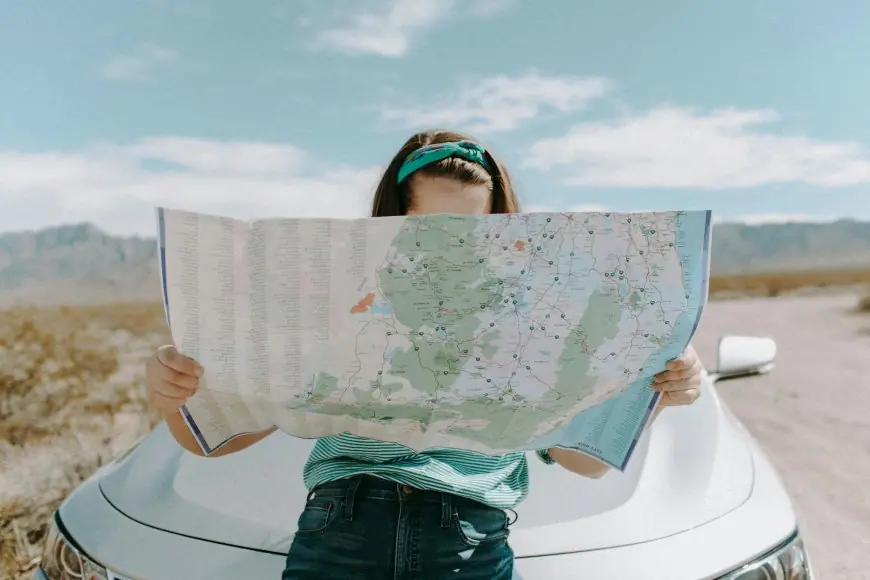How to Plan a Travel Trip

Planning a travel trip is an exciting and essential part of any journey. Proper planning ensures a smooth, enjoyable, and memorable experience. Whether you're traveling for leisure, adventure, or business, understanding how to plan effectively can make all the difference. This comprehensive guide will walk you through every step of the process, from setting your travel goals to capturing memories and reflecting on your trip once you return home.
Understanding Your Travel Goals
Before diving into the logistics, it's crucial to understand your travel goals. Are you looking for relaxation, adventure, cultural immersion, or perhaps a mix of everything? Defining your purpose and setting clear expectations will help shape your entire trip. Think about what you want to achieve and the experiences you seek.
Researching Destinations
Once you've outlined your goals, it's time to research destinations. Utilize online resources like travel blogs, guides, and social media platforms to gather information about potential locations. Look for destination reviews, recommended attractions, and local tips. Consider climate, political stability, and travel advisories to ensure a safe and enjoyable trip.
Budgeting for Your Trip
Budgeting is a cornerstone of trip planning. Start by estimating the total cost, including transportation, accommodation, meals, activities, and souvenirs. Research typical expenses in your chosen destination and set a realistic budget. Don't forget to factor in emergency funds for unexpected expenses. Saving tips, such as booking flights early and using travel rewards, can help stretch your budget further.
Choosing Travel Dates
Selecting the right travel dates is crucial. Consider the weather, local events, and tourist seasons. Traveling during the off-peak season can save money and offer a more authentic experience with fewer crowds. However, certain destinations may be best visited during peak seasons due to weather conditions or special events. Weigh the pros and cons before finalizing your dates.
Booking Transportation
Transportation is one of the most significant aspects of travel planning. Compare different options such as flights, trains, buses, and car rentals. Look for deals and discounts, and consider booking in advance to secure the best rates. Additionally, purchasing travel insurance is a wise decision to protect against cancellations, delays, and other unexpected issues.
Accommodation Options
Choosing the right accommodation can significantly impact your travel experience. Explore various options like hotels, hostels, vacation rentals, and even house-swapping. Consider the location, amenities, and reviews when making your choice. Booking in advance can also provide better rates and more options.
Creating a Travel Itinerary
An itinerary helps you organize your time and ensures you don't miss out on must-see attractions. Plan daily activities, but leave some flexibility for spontaneous adventures. Balance your schedule with a mix of sightseeing, leisure time, and local experiences. Research opening hours, ticket prices, and the best times to visit popular spots to avoid long waits.
Packing Essentials
Packing can be a daunting task, but a well-thought-out list can make it easier. Start with the basics: clothing, toiletries, and travel documents. Depending on your destination, you might need specific gear like hiking boots, swimwear, or formal attire. Pack light and consider the climate and activities planned. Don’t forget essentials like chargers, medications, and a first-aid kit.
Travel Documents and Insurance
Ensure all your travel documents are in order before your trip. This includes passports, visas, and any required vaccinations. Make copies of important documents and keep them in a separate place from the originals. Purchasing travel insurance is also crucial, as it covers medical emergencies, trip cancellations, and lost luggage.
Health and Safety Tips
Your health and safety should be a priority while traveling. Research any necessary vaccinations or health precautions for your destination. Carry a basic first-aid kit and know the location of the nearest healthcare facilities. Stay aware of your surroundings and follow local safety guidelines. Register with your embassy if you're traveling abroad for added security.
Technology and Travel Apps
Leverage technology to enhance your travel experience. Use navigation apps, language translators, and travel planners to simplify your journey. Apps like Google Maps, Duolingo, and TripIt can be incredibly useful. Additionally, keep digital copies of important documents and backup photos to cloud storage for added security.
Managing Money Abroad
Handling money while traveling can be challenging. Research the local currency and exchange rates before you go. Use a combination of cash and credit cards, and inform your bank of your travel plans to avoid issues. Budget your expenses and track your spending to ensure you stay within your limits.
Local Culture and Etiquette
Understanding local culture and etiquette can enrich your travel experience. Learn about cultural norms, dress codes, and communication styles. Respect local customs and traditions, and make an effort to learn a few basic phrases in the local language. This shows respect and can help you connect with locals.
Sustainable Travel Practices
Travel responsibly by adopting sustainable practices. Choose eco-friendly accommodations, support local businesses, and minimize your environmental impact. Simple actions like reducing plastic use, conserving water, and respecting wildlife can make a significant difference. Traveling sustainably ensures that future generations can also enjoy these destinations.
Solo Travel Tips
Traveling alone can be a rewarding experience, but it requires extra planning. Prioritize safety by sharing your itinerary with someone you trust and staying in well-reviewed accommodations. Make friends along the way through group tours or local meetups. Staying connected with loved ones back home can also provide peace of mind.
Family Travel Planning
Traveling with family, especially children, involves additional considerations. Choose destinations with kid-friendly activities and accommodations. Pack essentials like snacks, toys, and medications. Plan a flexible itinerary that includes downtime to keep everyone happy and energized. Safety is paramount, so ensure everyone knows what to do in case of an emergency.
Traveling with Pets
If you plan to bring your pet, research pet-friendly destinations and accommodations. Check travel requirements, including vaccinations and documentation. Pack essentials like food, water, and a travel crate. Make sure your pet is comfortable and safe throughout the journey.
Group Travel Tips
Traveling with a group requires coordination and communication. Plan together and make decisions that suit everyone. Split responsibilities and share expenses to make the trip smoother. Plan group activities but also allow for individual downtime. Clear communication can prevent misunderstandings and ensure a fun trip for everyone.
Special Interest Travel
Special interest travel, such as adventure, culinary, or historical trips, requires specific planning. Research destinations that cater to your interests and look for specialized tours or activities. Prepare accordingly with the right gear and knowledge to make the most of your experience.
Travel Photography Tips
Capturing your journey through photos is a great way to preserve memories. Invest in a good camera and learn basic photography techniques. Pay attention to lighting, composition, and angles. Share your photos on social media or create a travel blog to inspire others.
Dealing with Travel Stress
Travel can be stressful, but there are ways to manage it. Plan ahead and allow extra time for unexpected delays. Practice relaxation techniques and take breaks when needed. Keeping a positive attitude and being flexible can help you enjoy your trip more.
Language Barriers
Language barriers can be challenging, but they're not insurmountable. Learn key phrases in the local language and use translation apps. Non-verbal communication, such as gestures and expressions, can also be effective. Hiring a local guide can enhance your experience and help with communication.
Emergency Preparedness
Prepare for emergencies by having a plan in place. Carry essential contact information, including local authorities and your embassy. Pack an emergency kit with basic supplies and know the location of the nearest healthcare facilities. Being prepared can help you handle unexpected situations calmly.
Navigating Airports and Terminals
Airports can be overwhelming, but preparation makes it easier. Check-in online and arrive early to avoid long lines. Familiarize yourself with the airport layout and know the security procedures. Use airport lounges for a comfortable waiting experience, especially during layovers.
Using Public Transportation
Public transportation is often the best way to explore a destination. Research the local transit system and purchase passes if available. Learn the routes and schedules to save time and money. Ride-sharing services and taxis can also be convenient options for short trips.
Exploring Off the Beaten Path
For a unique experience, explore lesser-known destinations. These hidden gems often offer a more authentic and less crowded experience. Ask locals for recommendations and be open to spontaneous adventures. Off-the-beaten-path travel can lead to some of the most memorable moments.
Food and Dining Experiences
Trying local cuisine is a highlight of any trip. Research popular dishes and dining etiquette in your destination. Visit local markets and street vendors for authentic flavors. Be mindful of food safety and try to eat at well-reviewed establishments to avoid health issues.
Shopping Tips for Travelers
Shopping is a fun part of traveling, whether for souvenirs or local goods. Visit local markets and shops for unique items. Learn the art of bargaining if it's part of the local culture. Be cautious with your purchases to avoid overspending and ensure you have space in your luggage.
Capturing Memories
Documenting your journey helps keep the memories alive. Keep a travel journal, collect souvenirs, and take plenty of photos. Share your experiences with friends and family, or create a blog or scrapbook. Reflecting on your travels can be a rewarding part of the journey.
Returning Home
Returning home marks the end of your trip but not the end of the adventure. Unpack and sort your belongings, and take time to rest and recover. Share your experiences and reflect on what you learned. Start planning your next adventure, inspired by the memories you've made.
Planning a travel trip requires careful consideration and preparation. By following this comprehensive guide, you can ensure a smooth, enjoyable, and memorable journey. From understanding your travel goals to capturing memories, every step is crucial in creating a successful travel experience. Happy travels.







